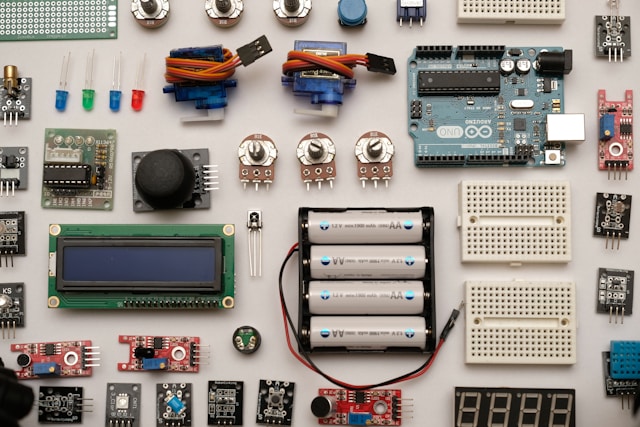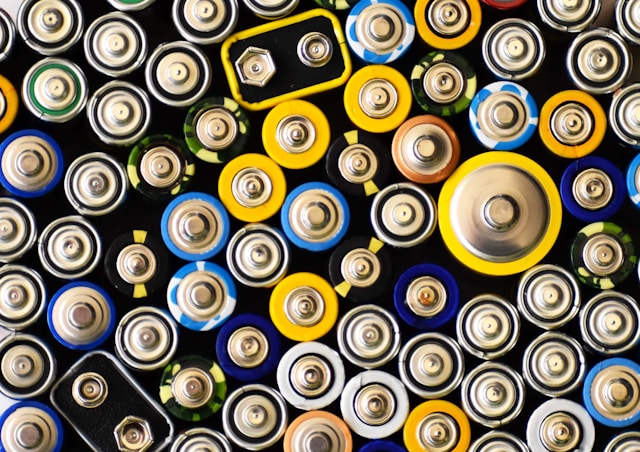Who would have thought that within the palm-sized objects powering our world lie fascinating stories of innovation, resilience, and sustainability? Batteries are not just mundane power cells; they’re enigmatic devices with rich histories and promising futures. In this blog, we will uncover charming facts about batteries you probably didn’t know, each fact shedding light on the layers of intricacies that make these little powerhouses so significant.
The Battery Lifecycle: More Than Just Power Supply
Battery Materials and the Environment
The lifecycle of a battery is an impressive display of engineering and chemistry, but it’s also critical to consider the environmental implications of the materials used. Surprisingly, many modern batteries are recyclable. The metals and other materials found inside can be repurposed, reducing the need for environmentally damaging mining practices. Nickel, cobalt, and lithium are among the valuable materials that can be extracted and reused for new batteries or in other industries. Battery recycling is a growing industry that’s anticipated to expand significantly in the coming years, a vital step in the larger pursuit of sustainable technology.
Battery Life and the Second-Life Market
Beyond the initial use, batteries often have a second life. Think of a smartphone battery that, after being degraded, finds a new home in a less demanding device or backup system. This secondary market for batteries is poised to become a game-changer in energy storage and mobility, ensuring that batteries contribute value far beyond their expected lifespan. This practice not only is cost-efficient but also supports the idea of a circular economy, where the end of one product’s life becomes the beginning of another.
Battling Climate Change with Battery Innovation
Battery technology is at the forefront of the fight against climate change. The shift towards electric vehicles (EVs), backed by advancements in battery capacity and charging speeds, is pivotal in reducing carbon emissions. When conducting battery testing, manufacturers invest heavily in research to develop more efficient and durable batteries. The stakes are high, but the potential rewards, such as a cleaner environment and sustainable energy sources, are even higher.
The Rise of Solid-State Batteries
Solid-state batteries, the next frontier in battery technology, hold the promise of dramatically safer and more powerful energy storage. Unlike the liquid or gel-form electrolytes found in lithium-ion batteries, solid-state technology employs solid conductive materials. This not only reduces the risk of fires and explosions but also allows for greater energy density, which translates to longer ranges in EVs and the potential to disrupt energy storage solutions. With companies like Toyota and QuantumScape making significant investments, solid-state batteries could be powering our devices sooner than we think.
Battery in Business: The Economic Influence
Job Creation in Battery Technology
The surge in demand for electric vehicles and renewable energy is driving significant job growth. The battery industry is creating new positions, from research and development to manufacturing and sales. Communities that host battery plants are experiencing a boost in the local economy, with new infrastructure and services catering to the growing workforce.
Global Competition in Battery Production
Battery production has become a focal point of international competition. With countries aiming to secure their place in the supply chain, there is a race to build battery factories and develop domestic battery technology. This global push is beneficial not only for employment but also for innovation, as it may lead to more robust and affordable battery solutions.
The Future Charge: What to Expect from Batteries Next

Battery Innovations for the Household
In the not-so-distant future, home batteries could become as common as solar panels. Systems like the Tesla Powerwall are already storing energy from renewable sources for home use, reducing dependence on the grid. Improvements in battery technology will likely make these systems more efficient and cost-effective, empowering consumers to take control of their energy consumption.
Wearable Tech and Tiny Power Storage
The evolution of batteries isn’t just about size and power. Wearable technology like smartwatches and fitness trackers demands batteries with distinct characteristics. These will need to be flexible, light, and have the capacity to store energy while enduring constant movement and bending. Research in these ‘micro’ batteries could lead to breakthroughs in how we power and use electronics that are seamlessly integrated into our lives.
Batteries are silent heroes in our lives, enabling the portable, the mobile, and the innovative. From the humble alkaline cell to the cutting-edge solid-state battery, these power packs are driving societal shifts and technological breakthroughs. In your quest for knowledge, remember that within every battery lies untold potential, silently waiting for a chance to spark change. When conducting battery testing or simply enjoying the convenience they afford, appreciate the remarkable journey each battery has taken to reach your hands.







